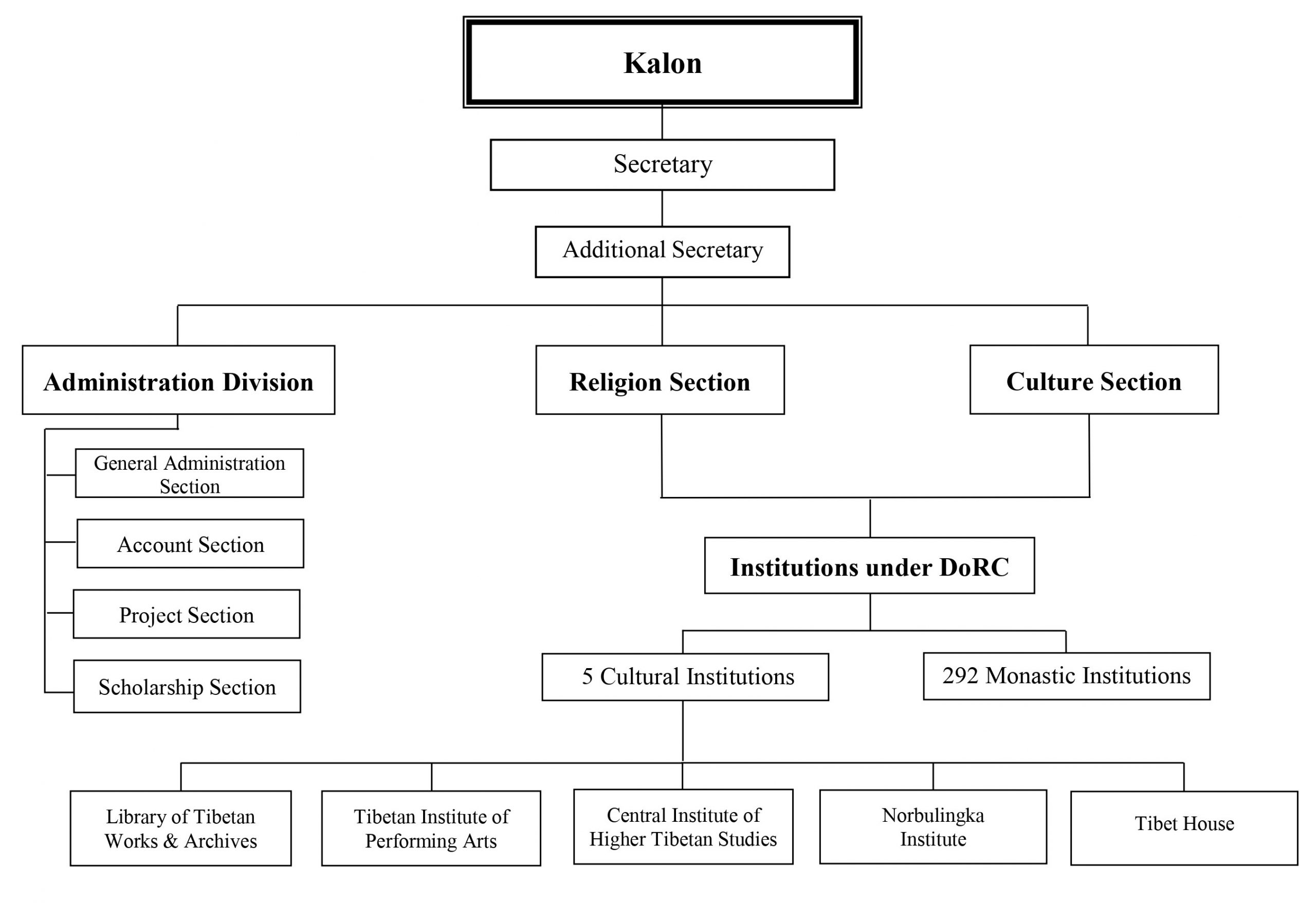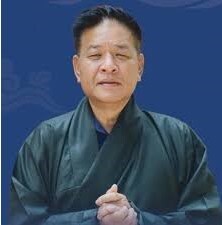The primary aim is to preserve and promote Tibetan religion and culture which has suffered and continue to suffer at the hands of Chinese regime in Tibet.
Other objectives are:
-
To plan and implement religious and cultural policies according to advice of His Holiness the 14th Dalai Lama and Central Tibetan Administration.
-
To promote unity and harmony amongst Tibetan religious schools.
-
To give help to the Tibetan monasteries, nunneries, temples, and cultural institutions for preserving and promoting cultural heritage of Tibet.
-
To organize and participate in conferences and seminars on religion, culture, and Tibetan studies.
-
To liaise with important religious associations of other faiths and with Tibetan and non-Tibetan Buddha Dharma Centers.
-
To conduct and sponsor research in the areas of Tibetan and Buddhist studies.
-
To oversee and assist to support the traditional monastic curricula in the reestablished Tibetan monasteries, nunneries, and cultural institutions.
-
To hold public discourses and teachings for promotion and preservation of unique and rare oral religious transmissions.
-
To look after the old, sick, and destitute monks and nuns and those who are in retreat.
-
To organize and perform regular and special religious events and activities.
ORGANISATIONAL STRUCTURE
The Department of Religion and Culture has three main sections:
Administrative Section: This section is the main body of the department whose function is to manage and maintain the overall function of the department. The account, scholarship, and sponsorship come under the supervision of the Administrative division. Each sub-section has its own special functions and the concerned persons need to report to an Additional Secretary and the Secretary.
Religious Section: This section has a responsibility to organize and implement various religious activities with the aim of preserving and promoting Tibetan Buddhism and strengthening better relations among four major schools of Tibetan Buddhism and Bon, Jonang Tradition. The prayer section, Book publication section, and Research section come under the Religious section.
Culture Section: This section was established in July 2021 with the approval of Kashag. The main aim of establishing the culture section is to strengthen its activities and programs for the preservation of Tibetan culture and language.

 Brief biography of Kalon Penpa Tsering
Brief biography of Kalon Penpa Tsering
Sikyong Penpa Tsering is the democratically elected political leader of the Tibetan Government-in-Exile, formally known as the Central Tibetan Administration (CTA), headquartered in Dharamshala in Northern India. On 27 May 2021, he was sworn in as the Sikyong, a Tibetan title for political leader, at an official ceremony graced by His Holiness the Dalai Lama, who devoted his political authority to the elected leadership in 2011. The election for Sikyong held in exiled Tibetan communities across 30 countries, including India, saw the highest-ever voter turnout of 77.02 percent in the history of exile Tibetan democracy.
Born in a Tibetan refugee settlement in Southern India, Penpa Tsering graduated from the prestigious Madras Christian College (MCC) in Chennai with a Bachelor’s degree in Economics from 1985-1988. During his university years in the late 1980s, a new generation of Tibetans led a wave of demonstrations – the first to occur in Tibet since the Tibetan Uprising against the Chinese occupation of Tibet in 1959. This inspired him and many other young Tibetan refugees in India to actively join the Tibetan freedom movement. During this period, he founded a Tibetan Freedom Movement office which initiated a solidarity campaign highlighting the plight of Tibetans under Chinese rule. Additionally, the office facilitated connections between Tibetans residing in the Indian regions of Tamil Nadu and the Union Territory of Pondicherry. Penpa Tsering has remained committed to the Tibetan cause and actively engaged in Tibetan political movements since his college graduation.
In 1996, Penpa Tsering was elected as a Member of the Tibetan Parliament-in-Exile representing Tibet’s traditional Domey Province Constituency. As a parliamentarian, he focused on advancing the Middle Way Approach advocated by His Holiness the Dalai Lama for resolving the Sino-Tibetan conflict. He also lent his expertise in economics to the Parliament’s Budget Estimate Committee.
He secured re-election to the Tibetan Parliament in 2001 and concurrently led the Tibetan Parliamentary and Policy Research Center in New Delhi, strengthening parliamentary support for the Tibetan cause in India and globally. Through his persistent efforts, the All-Party Indian Parliamentary Forum for Tibet was successfully revitalized. In 2008, he was elected as Speaker of the 14th Tibetan Parliament-in-Exile, and he secured a fourth term as a parliamentarian in the 15th Tibetan Parliament-in-Exile in 2011, again serving as Speaker by a majority vote.
Over two decades as a Tibetan parliamentarian, Penpa Tsering spearheaded various initiatives to promote Tibetan freedom. These ranged from fostering grassroots democratic principles among the Tibetan public to empowering youth through workshops and seminars. He served as a dedicated representative of the Tibetan people, actively working to enhance the Tibetan movement’s diplomatic relations and advocacy efforts at national and international levels.
Penpa Tsering has been one of the longest-serving Members of the Tibetan Parliament-in-Exile, having served from 1996 to 2016 and the last two terms as Speaker of the House. Subsequently, he served as the Representative of the Dalai Lama and the CTA to North America. In this role, he engaged with US Congress leaders, top officials, and influential think tanks, bolstering American support for Tibet and driving forward new initiatives. He also played an active role in various forums and discussions on the Sino-Tibet conflict, including dialogues with overseas Chinese intellectuals and democracy activists based in North America.
On 2 September 2020, Mr Tsering formally announced his candidacy for the position of Sikyong, the political leader of the Tibetan people and democratic head of the Central Tibetan Administration. In 2021, he has been elected as the Sikyong of Central Tibetan Administration by the Tibetan populaceliving in diaspora, and has taken oath on 27 May 2021. He also undertakes the responsibilities of four departments including Department of Religion and culture, Department of Homes, Department of Finance and Department of Health.
KALONS
-
Sonam Topgyal Shenkha Gyurmey (1959 – 1961)
-
Ta Lama Thupten Norsang (1961 – 1964)
-
Woesar Gyaltsen Kundeling (1964 – 1975)
-
Thupten Nyinchen Phechoe (1976 – 1979)
-
Thupten Namgyal Juchen (1979 – 1987)
-
Lodi Gyaltsen Gyari (1987 – 1987)
-
Lobsang Dhargyal Shewo (1987 – 1989)
-
Kelsang Yeshi (1989 – May 1996)
-
Tenzin Pelbar Alak (June 1996 – March 1997)
-
Kirti Rinpoche Lobsang Tenzin (April 1997 – March 1999)
-
Kalon Tripa Sonam Topgyal (April 1999 – September 1999)
-
Tashi Wangdi September (1999 – September 2001)
-
Thupten Lungrig (September 20, 2001 – March 04, 2005)
-
Lobsang Nyima (March 5, 2005 – August 14, 2006)
-
Ven Tsering Phuntsok (October 07, 2006 – August 07, 2011)
-
Pema Chhinjor (September 17, 2011 – May 26, 2016)
-
Ven Karma Gelek Yuthok ( June 1, 2016 – May 25, 2021)
SECRETARIES
-
Ngawang Dhundup Khendrung (1960 – 1963)
-
Chogye Trichen Rinpoche (1963 – 1965)
-
Ngawang Choesang (1975 – 1979)
-
Khamtrul Rinpoche Jamyang Dhundup (1980 – 1985)
-
Mr. Kelsang Yeshi (1985 – 1989)
-
Ven. Karma Gelek Yuthok (December 5, 1989 – December 13, 1993)
-
Mr. Lobsang Khedup (January 3, 1994 – July 1, 2000)
-
Ven. Karma Gelek Yuthok (October 3, 2000 – April 8, 2002)
-
Mr. Thupten Tashi Anyetsang (April 9, 2002 – October 13, 2004)
-
Tashi Norbu (November 22, 2004 – February 15, 2006)
-
Tsering Dhundup Namey Lakhang (February 16, 2006 – August 26, 2008)
-
Mr. Lobsang Tsultrim Jeshong (August 28, 2008 – March 31, 2009)
-
Mr. Gonpo Phuntsok [On deputation] (April 10, 2009 – September 07, 2009)
-
Mr. Gonpo Phuntsok (September 08, 2009 – December 15, 2010)
-
Mr. Ngawang Choedak Choetri Tengpa (December 13, 2011 – October 02, 2013)
-
Ven. Norbu Dhonden (October 03, 2013 – June 30, 2014)
-
Mr. Dhondup Dorjee Gyalling (July 1, 2014 – March 14, 2016)
-
Mr. Tsegyal Chukya Dranyi (March 15, 2016 – August 07, 2016)
-
Mr. Tenzin Lungtok, Acting Secretary ( August 08, 2016- May 21, 2017)
-
Mr. Tenzin Lungtok (May 22, 2017 – January 09, 2020)
-
Mr. Tsegyal Chukya Dranyi (February 19, 2020 – August 30, 2021)
-
Mrs. Chime Tseyang Lhutritsang (September 01, 2021 – April 09, 2024)
